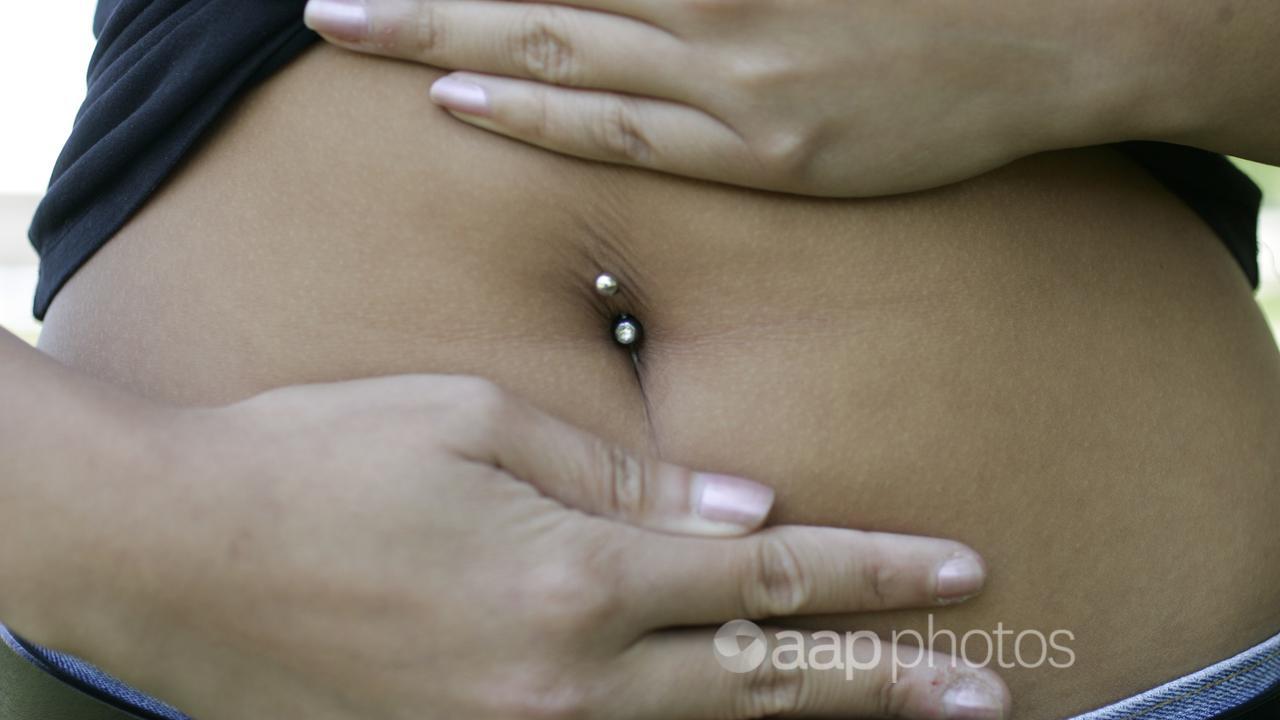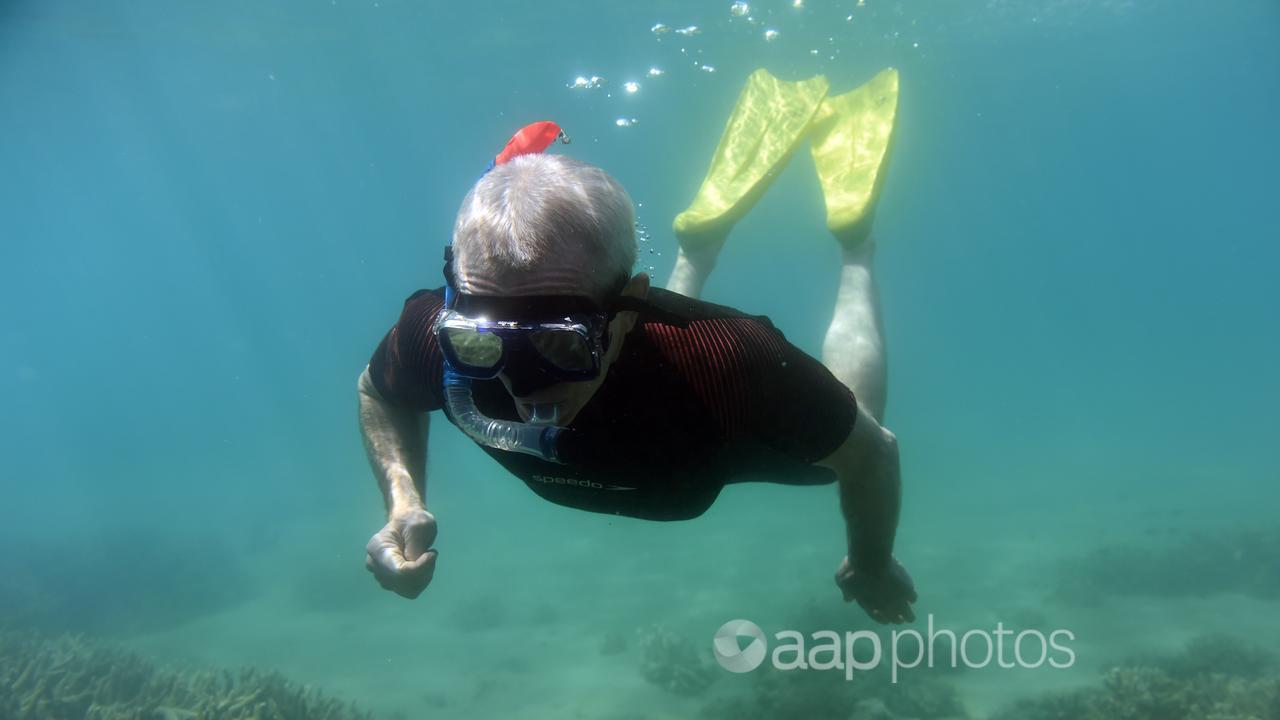Multiple Facebook posts (here, here, here and here) claim that essential oils should be applied to the “Pechoti gland” located in the navel, “which has more than 72,000 veins and millions of nerves” and “has been used for centuries in other cultures as a delivery for medicine and treatments”.
However, there’s no scientific evidence the Pechoti gland exists – and while there is some medical research that indicates the health benefits of essential oils, there’s no advantage to pouring them into your belly button, experts say.
One post claims that “applying oil in the navel heals the dryness of the eyes, poor view, the pancreas, the heels, and chapped lips, keeps the face bright, the hair healthier, for knee pain, the chills, lethargy, pain in the joints and dry skin”.
“Essential oils” are a broad term for the concentrated extracts of plants that are commonly used in natural and alternative health practices. They’re typically delivered either through inhalation or topical application.
Claims about a “Pechoti method” can be found circulating on the internet, mostly tied in with Ayurvedic medicine, a holistic healing system used in India for thousands of years. Many posts also claim the Pechoti method is an effective way to absorb CBD, or cannabidiol oil.
Hannah Dahlen is a professor of midwifery at Western Sydney University who has written about the formation of the belly button. She told AAP FactCheck that claims about the Pechoti gland were false.
“I think this is complete fabrication … (it) does not make sense, as everything closes off and turns to ligaments after the (umbilical) cord comes off,” she said in an email.
Wendy Maddocks, an integrative health care specialist at the University of Canterbury who has written several research papers on essential oils, agreed that the gland did not exist.
“The claims made in reference to a ‘Pechoti gland’ on the navel is not supported by scientific evidence, however in some traditional medicines there is a belief system attached to this concept,” Dr Maddocks said via email.
While essential oils were popular for treating a variety of conditions, there was no particular benefit to putting them on the navel, she added.
“Some claims about essential oils being applied to the navel, and affecting other body systems are not supported by research,” Dr Maddocks said.
Joanna Harnett, a senior lecturer at the University of Sydney Faculty of Medicine and Health focusing on complementary medicines told AAP FactCheck: “I have never heard of the ‘Pechoti gland’ nor does a search of the public medical library for literature pertaining to its existence or role exist.”
Dr Harnett also said she was not aware of any evidence that essential oils applied to the navel provided more substantial health benefits.
As for claims oil in the navel can heal dry eyes, limp hair or bad vision, Dr Maddocks said “this way of using the oils makes no sense at all”.
“No essential oil or fixed vegetable oil will help with poor vision. Locally applied oils can help with improving the complexion, hair texture, muscular aches and pains and dry skin when applied to the area needing treatment,” she said.
Louise Bennett, a professor at the Monash University School of Chemistry who has written about the biological effect of essential oils, said essential oils should be used with care and overuse may result in “a rash or worse”.
Medical research is mixed on the benefits of essential oils.
“Some studies indicate that there’s a benefit to using essential oils while others show no improvement in symptoms,” wrote Johns Hopkins School of Medicine in an article analysing their health impact.
Studies have found that essential oils may have a role in treating anxiety disorders, depression and pain, particularly when used in conjunction with other medical treatments.
The International Aromatherapy & Aromatic Medicine Association, based in Australia, recommends following safety guidelines and professional advice if using essential oils. In Australia, essential oils that carry therapeutic claims are regulated by standards from the Therapeutic Goods Administration.
Dr Maddocks recommended people seek professional advice on essential oils and “caution with many of the unfounded claims often found on social media in relation to this non-existent gland”.
The Verdict
There’s no scientific evidence that essential oils poured in the navel will provide any particular benefit or that the purported “Pechoti gland” exists, multiple experts told AAP FactCheck. Essential oils may, more generally, help with the treatment of some conditions, however there’s no credible evidence they will provide many of the benefits claimed in the posts, such as curing dry eyes, poor vision or bad hair.
Mostly False – The claim is mostly inaccurate but includes minor elements of truth.
AAP FactCheck is an accredited member of the International Fact-Checking Network. To keep up with our latest fact checks, follow us on Facebook, Twitter and Instagram.
All information, text and images included on the AAP Websites is for personal use only and may not be re-written, copied, re-sold or re-distributed, framed, linked, shared onto social media or otherwise used whether for compensation of any kind or not, unless you have the prior written permission of AAP. For more information, please refer to our standard terms and conditions.


















